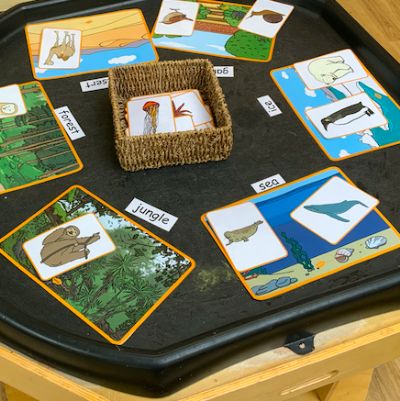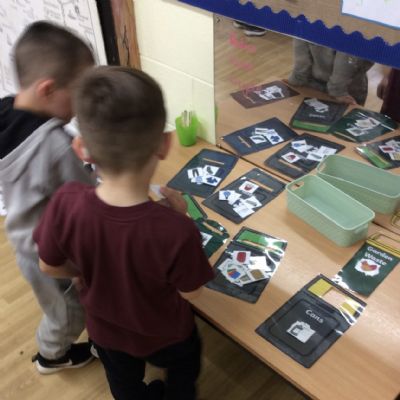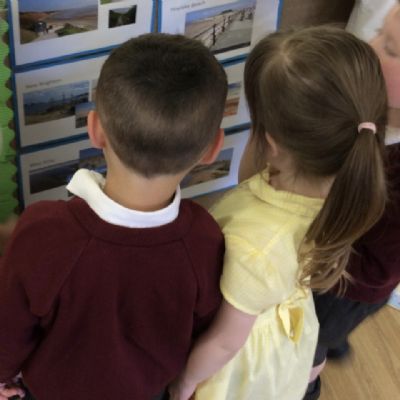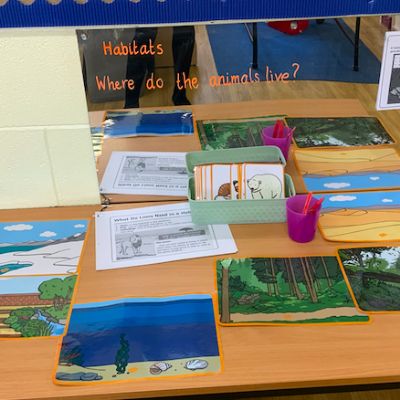Summer Term
Nursery
The children in nursery have been developing their understanding of the world and how changes happen over time. The children planted beans and watched them grow. They learnt there are lots of ecological elements which need to work together to make their plant grow. The children know their plant needs soil, water, air and sun to thrive. They have made observations of their plants through descriptions and drawings as well as comparing their lengths.
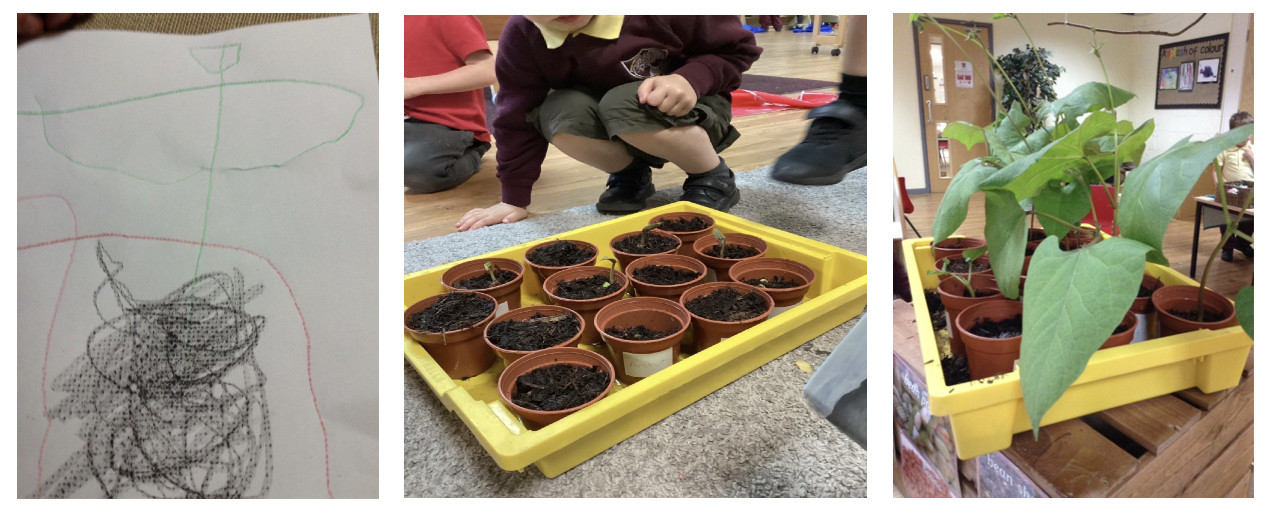
Nursery - Woodland Learning
This term the children in Nursery have been following instaructions to find hidden objects in the woodland area, using directional language.
Reception - How do we look after our environment?
The children in Reception have explored a range of local environments, the animals that live there and how to look after them.
Reception - Woodland Learning
This term the children in Reception have been hiding natural objects and directing a partner to the locations using directional language, including the use of left and right.

Year 1 - Hot and Cold Places
In this topic, children will:
- Know the names of the 7 continents and identify them on a world map.
- Know directional vocabulary, including North, South, East and West to locate places on the world map.
- Know the position of the equator and the North and South poles.
- Know the location of hot and cold areas of the world in relation to the Equator and the North and South Poles.
- Know some human and physical features of hot and cold places around the world.
- know what the effect of living in a hot or cold place has on life there e.g. clothing, transport, animals who live there, homes.

Year 1 - Woodland Learning
In this topic, children will:
- Demonstrate understanding of the concept of a basic map.
- Orientate a map with support.
- Develop their place knowledge of the local area.

Year 2 - Comparing Locations
In this topic, children will:
- Know the human and physical features of Australia.
- Know the names of the 7 continents and 5 oceans and identify them on a world map.
- Know the geographical location of the Uk and Australia on a world map.
- Know the similarities and differences between an urban area in Merseyside (UK) and Sydney (Australia).
- Know the similarities and differences between a rural area in Merseyside (UK) and the outback in Australia.
- Know that Australia has a hot climate due to its close proximity to the Equator.

Year 2 - Woodland Learning
In this topic, children will:
- Understand how to orientate the map.
- Navigate your way around a simple orienteering course
- To develop their place knowledge of the local area and UK.

Year 3 - Water, Weather and Climate
In this topic, children will:
- know the difference between weather and climate
- Know the water cycle
- know why we have seasons

Year 3 - Woodland Learning
In this topic, children will:
- Complete a simple orienteering activity in groups, such as ‘star’ orienteering.
- Understand how to orientate the map.

Year 4 - Natural Resources
In this topic, children will:
- Give examples of natural resources
- Know how population affects the use of natural resources
- Know how a circular economy can help the planet

Year 4 - Woodland Learning
In this topic, children will:
- Understand how to orientate the map.
- Build trust with a partner and work together when orienteering.
- Complete a simple rienteering activity in pairs / groups, such as ‘star’ orienteering.

Year 5 - Energy and Sustainability
In this topic, children will:
- Define sustainability
- Know examples of renewable and non-renewable energy sources
- Know how some cities are tackling sustainability

Year 5 - Woodland Learning
In this topic, children will:
- Develop the orienteering skills of orientating a map, following a course.
- Understanding of the relationship between pacing and distance.
- Improve confidence in map reading and the transfer of information from map to ground.

Year 6 - Local Fieldwork
In this topic, children will:
- Know what geography fieldwork is
- Know why geographers do fieldwork
- Know some ways that geographers do fieldwork.
- Know some fieldwork techniques that can be used when studying human and physical features in their local area.

Year 6 - Woodland Learning
In this topic, children will:
- Be able to take a bearing from a map and use that bearing to find a control point.
- Combine map reading and compass points.
- To to navigate around a scatter orienteering course.


